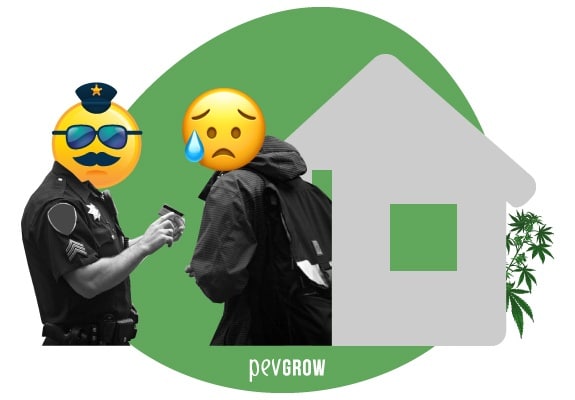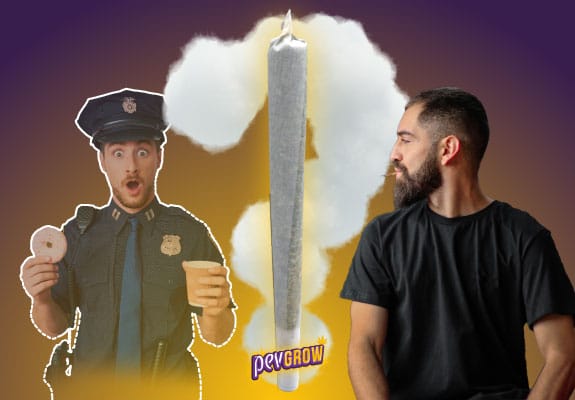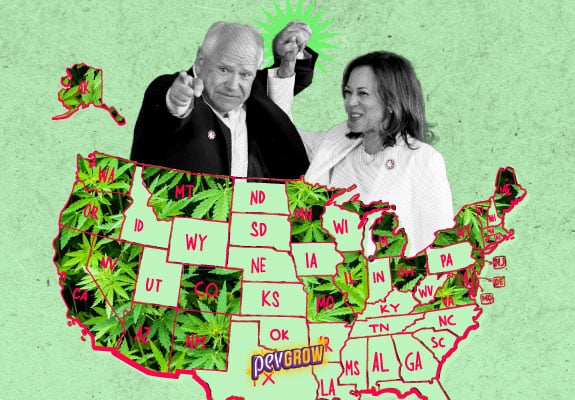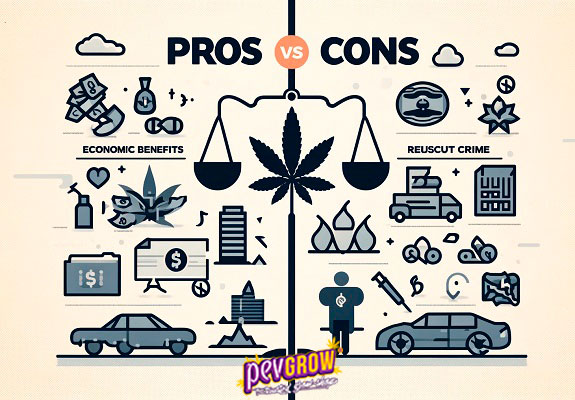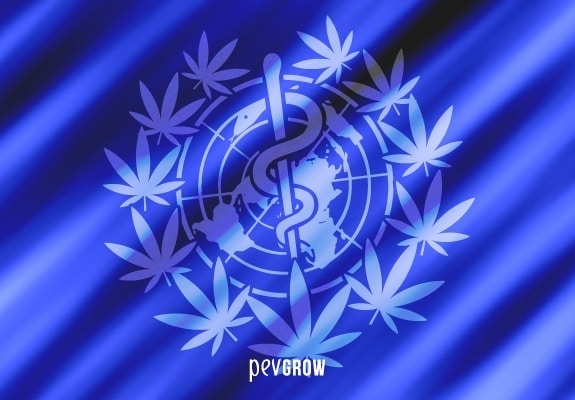

26-03-2021 16:00:37 - Updated: 26 March, 2021
Those of us who have worked in the sector for many years thought that this moment would never come, but it seems that we are getting closer and closer to the legalization of marijuana worldwide. Lately there is a lot of talk about the medicinal components of the cannabis plant, and after the latest report published by the world health organization on the matter, the decriminalization of marijuana seems unstoppable. If you want to find out what this important report says, and all the possible changes that are coming, I advise you to continue reading this article…
📲 How did the change in criteria begin?
It was not really the United Nations organization or the world health organization that allowed member states to decriminalize cannabis use. In the world there were several examples of states that took measures in this regard without taking into account the recommendations of the UN or the WHO, which in principle are responsible for regulating these laws at the global level.
The Netherlands has had a soft drug law for more than 40 years that has worked better than most countries with total prohibition. In other European countries you could also consume marijuana legally, the neighborhood Christiania in Copenhagen (Denmark) was an example of freedom, and in its markets you could easily buy buds and hashish. Another example are some venues in Vienna (Austria) or Prague (Czech Republic), not to mention the social clubs of cannabis consumers in Spain, especially in Barcelona.
Therapeutic and recreational legalization in America
But it was not for these libertarian redoubts that the WHO reconsidered the ban on this plant. In the year 2013 Uruguay legalized the consumption, cultivation, and sale of cannabis through pharmacies. Although, as we have seen, Uruguay was not the first country to take unilateral measures, it was responsible for other government leaders thinking of its legal model.
Some states in the USA legalized medical cannabis treatment in the late 1990s, but it was not until 20 years later that they began to decriminalize recreational or recreational use. Colorado was the first state in this country to regularize the total consumption of marijuana as of January 1, 2014, and quickly joined Washington, California, Oregon, and so on, up to 14 states plus the District of Columbia.
Canada was the first G8 country to fully legalize cannabis use at the end of 2018. It was one of Prime Minister Justin Trudeau’s electoral promises, and it was not long before his party took power in this country. Canada had already legalized medicinal use in some regions before, and in some cities like Vancouver it was quite common to find dispensaries on many corners. In addition to this state, Israel, Germany, Italy, the United Kingdom, and more recently Argentina or Mexico passed laws to be able to administer medical cannabis to their citizens.
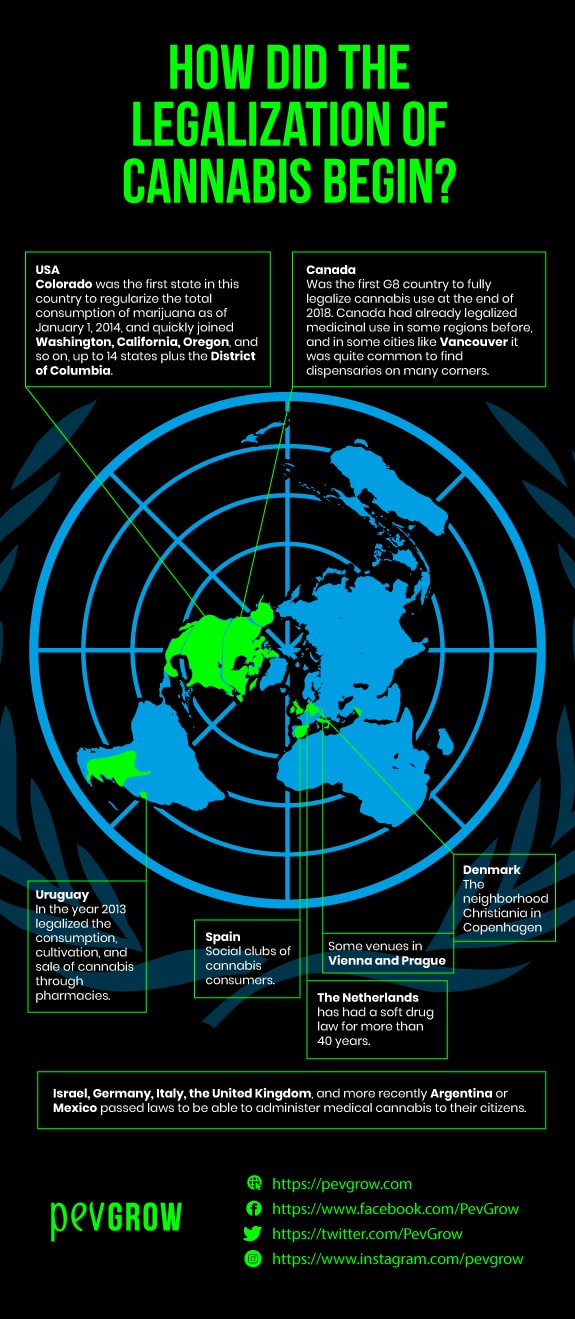
📖 The world health organization now says that CBD is not dangerous or addictive
In the study published by the world health organization, they clearly state that the consumption of cannabidiol does not create dependency or cause health problems. The experiment was carried out with animals, and the results were exposed in different points that we summarize below:
- Its use or abuse is not harmful or addictive: In the tests, doses of 1, 3 and 10 mg / kilo of injected CBD were administered to mice, and the same amounts of THC on other occasions, proving that cannabidiol is not harmful or generates dependency after many days of consumption.
- Proven medicinal properties: There are many benefits caused by the consumption of CBD, as an anti-inflammatory or against epilepsy for example. We currently have a great need for non-opioid relaxing, anxiolytic, or sedative medications, because in some countries they have created big problems..
- Does not raise alarm in society: Like other substances are frowned upon by many sectors of society, cannabidiol is seen as a harmless drug, but with many properties. In the second point of the WHO report, it is acknowledged that there was no public concern in this regard.
- Null Psychoactivity: CBD is a cannabinoid that does not produce psychoactivity, as does THC, another compound in marijuana. This, added to its hopeful therapeutic value for treating many ailments and diseases, is another compelling reason to consider it a safe substance.
👌 The WHO recommends the UN to change the list to cannabis
Since the Vienna narcotics convention held in 1961, in which all controlled narcotic substances were classified on several lists, cannabis is on list IV, where they are the most dangerous and without medicinal properties.
The world health organization has changed its criteria regarding this plant, and now recommends that the United Nations remove marijuana from list IV and reclassify it in list I, where substances with recognized properties are found. therapeutic, with less control, and open to research
✨ Evidence-based change of approach
In the letter sent by the director general of the world health organization, Tedros Adhanom, to the UN secretary general, Antonio Guterres, the World Health Organization explains that its Expert Committee on Drug Addiction ( ECDD, in its acronym in English) has analyzed cannabis and other substances derived from it and their properties and proposes to remove the plant and its derivatives from Schedule IV of control, reserved for substances “very dangerous and without any or very limited medical value.“and include some of its active principles, such as THC or CBD, in List 1.
Regarding cannabidiol, which does not have psychoactive properties, the WHO proposes to include a footnote that says that”preparations that predominantly contain CBD and not more than 0.2% THC [this component does have psychoactive effects] are not under international control. ” With this change of position, the first by the WHO regarding a substance considered to be a drug, it comes to resolve the doubts that were raised regarding the therapeutic properties of cannabis.
⛳ What will happen from now on?
When the UN incorporates this recommendation, the states will have the endorsement to follow the path set by dozens of countries that had skipped the Convention long ago, such as Germany, Israel, many states in the USA or Canada with medicinal use and, more recently, countries like Canada or Uruguay with comprehensive regulation.
A new world is opening up, and although many countries have already changed their laws regarding medical cannabis in recent years, from this moment on the states that denied the scientific evidence of this plant will have to reconsider their position, because WHO is the leading health agency at the global level.
It is easy that from now on, many laboratories and pharmaceutical companies begin to investigate to commercialize drugs derived from cannabis, and more and more we will see new cosmetic products, edibles, beverages, and all kinds of drugs made from our precious plant appear.
⭐ Conclusion
It seems that things are changing lately, and what seemed like a utopia a few years ago, may be closer than we think. What is clear is that neither prohibition has worked, nor can we afford to do without a plant with so many medicinal properties, so sooner rather than later we will see all kinds of products created from cannabis.

